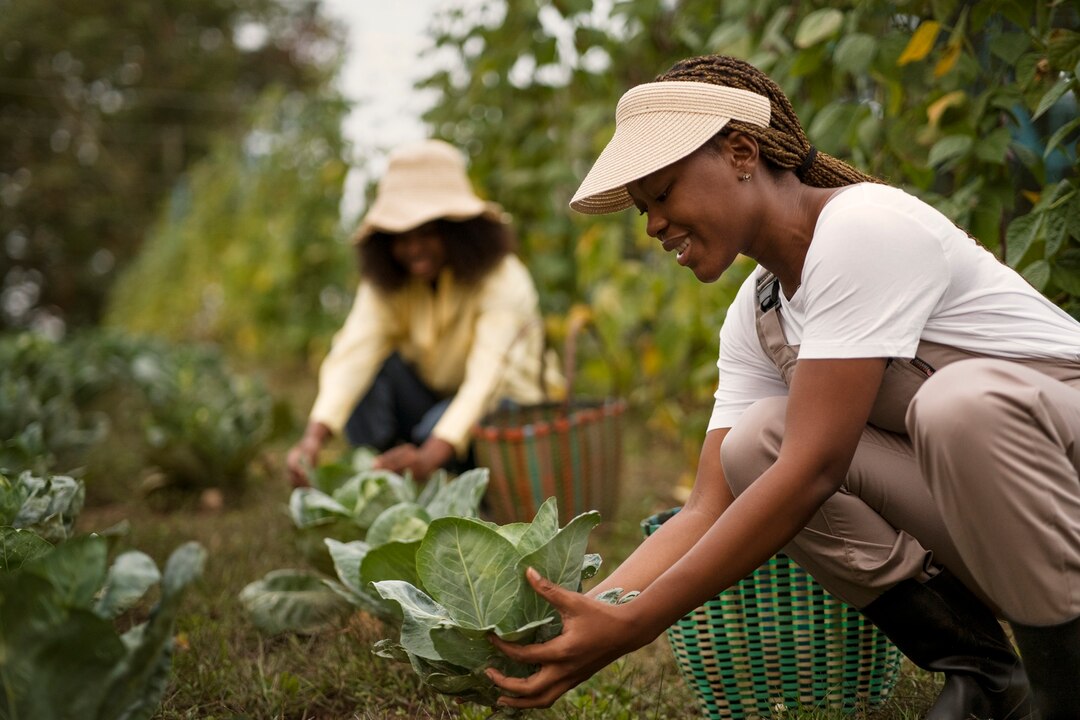In recent years, Namibia has witnessed a significant shift towards organic farming as more farmers embrace environmentally friendly and sustainable agricultural practices. Organic farming is rapidly gaining popularity across the country, thanks to its numerous benefits for the environment, health, and the economy. This article explores the rise of organic farming in Namibia, highlighting its growth, the driving factors behind its adoption, and the challenges and opportunities in this evolving sector.
1. What is Organic Farming?
Organic farming refers to agricultural practices that avoid the use of synthetic chemicals, pesticides, and fertilizers, focusing instead on natural methods to maintain soil health, control pests, and enhance crop production. The primary goal of organic farming is to work in harmony with nature, promoting biodiversity, and using sustainable techniques that preserve the environment for future generations.
In Namibia, organic farming has become an important movement, with both small-scale and commercial farmers embracing this approach to agriculture. This shift is driven by a growing demand for healthier, eco-friendly food products and the recognition that traditional farming methods need to adapt to challenges like climate change and soil degradation.
2. The Growth of Organic Farming in Namibia
Namibia’s organic farming sector has experienced significant growth over the past decade. Initially, organic farming was seen as a niche market, limited to a few dedicated farmers and smallholder agricultural projects. However, as consumer demand for organic produce has increased globally, Namibia has emerged as an important player in the organic agriculture market.
According to the Namibia Organic Association (NOA), the country now has a rapidly expanding base of organic farmers who produce a wide variety of crops, including vegetables, fruits, grains, and herbs. Namibia has also seen a rise in organic livestock farming, with farmers focusing on organic meat and dairy production, as well as free-range poultry.
3. Key Drivers of the Organic Farming Movement in Namibia
Several factors have contributed to the rise of organic farming in Namibia, including:
a. Increasing Demand for Organic Products
The global trend towards healthier, pesticide-free food has driven demand for organic products in both local and international markets. Namibian consumers, particularly in urban areas, are increasingly aware of the health benefits of organic food and are seeking out products that are free from harmful chemicals and synthetic fertilizers. This growing demand for organic produce is encouraging farmers to transition to organic farming methods to meet market needs.
In addition, organic exports are on the rise, with Namibian farmers selling their products to international markets in Europe, the United States, and other regions where organic food is in high demand. Namibia’s favorable climate and high agricultural potential make it an attractive source of organic products for export.
b. Environmental Sustainability
Namibia, like many countries in sub-Saharan Africa, faces significant environmental challenges, including soil erosion, water scarcity, and land degradation. Organic farming offers a sustainable solution to these problems by promoting soil conservation, enhancing water retention, and reducing the environmental impact of agricultural practices.
Organic farming practices, such as crop rotation, composting, and the use of organic fertilizers, help improve soil fertility, reduce erosion, and maintain biodiversity. By minimizing the use of harmful chemicals, organic farmers are also reducing the pollution of waterways and promoting healthier ecosystems.
c. Climate Change Adaptation
Climate change poses a serious threat to agricultural productivity in Namibia, with unpredictable rainfall patterns, prolonged droughts, and rising temperatures affecting crop yields. Organic farming, with its emphasis on sustainable land management and natural resource conservation, is seen as a viable solution to help farmers adapt to changing climatic conditions.
For example, organic farming techniques such as mulching, cover cropping, and agroforestry can improve soil moisture retention, reduce water usage, and help crops withstand periods of drought. These practices make organic farming a more resilient and climate-smart approach to agriculture in Namibia.
d. Government Support and Policy Framework
The Namibian government has recognized the potential of organic farming as a key component of the country’s agricultural development. Various government initiatives, including the Namibia Organic Standards and the Organic Certification Program, have been introduced to support the growth of the organic farming sector.
The government’s support also includes providing technical training, extension services, and financial assistance to farmers looking to transition to organic farming. These initiatives have helped increase awareness about organic farming practices and create a more conducive environment for their adoption.
4. Challenges Facing Organic Farming in Namibia
While the rise of organic farming in Namibia is promising, there are several challenges that farmers must overcome to ensure the sustainability and success of the sector:
a. Limited Knowledge and Expertise
One of the key challenges facing organic farming in Namibia is the lack of widespread knowledge and expertise among farmers. Transitioning from conventional to organic farming requires a deep understanding of organic practices, pest management, soil health, and crop rotations.
To address this issue, training and capacity-building programs are essential to ensure that farmers have the skills and resources needed to adopt organic farming practices successfully. The Namibian Organic Association and other stakeholders have been working to provide education and technical support to farmers, but more investment in training is needed.
b. Certification and Market Access
Organic certification is essential for accessing premium markets, both locally and internationally. However, the certification process can be costly and time-consuming, especially for small-scale farmers. The expense of certification can be a barrier for many Namibian farmers, particularly those in rural areas who lack the financial resources to meet the necessary standards.
Additionally, organic farmers in Namibia face competition from other countries with well-established organic certification systems, making it important for Namibia to strengthen its certification processes and marketing strategies to remain competitive in the global organic market.
c. High Production Costs
Organic farming often involves higher upfront costs compared to conventional farming, primarily due to the need for organic inputs like compost, organic seeds, and pest management materials. Furthermore, organic farming may yield lower quantities in the initial years as soil fertility improves, leading to financial challenges for farmers during the transition period.
While these costs can be offset by higher prices for organic produce, it may take several years before farmers see significant returns on their investment. Financial support from the government, NGOs, and private sectors is crucial to help farmers overcome these initial hurdles.
5. Opportunities in the Organic Farming Sector
Despite the challenges, organic farming in Namibia presents significant opportunities for growth and development:
a. Export Potential
Namibia’s favorable climate and unique agricultural conditions make it an attractive producer of organic products for export. The growing global demand for organic food presents an opportunity for Namibian farmers to tap into international markets, particularly in Europe, where consumers are increasingly seeking out organic produce.
By focusing on export markets and building relationships with international buyers, Namibia can strengthen its position as a key player in the global organic food market.
b. Eco-Tourism and Organic Farming Synergies
Namibia’s vibrant eco-tourism industry presents an opportunity for organic farming to further develop. Visitors to Namibia are often interested in sustainable and eco-friendly practices, and organic farms could serve as tourist attractions, offering farm tours, organic produce, and educational experiences on sustainable farming techniques.
This synergy between eco-tourism and organic farming could create new income streams for farmers and contribute to the growth of both sectors.
c. Local Food Security and Community Development
Organic farming also offers opportunities for improving food security in Namibia, especially in rural areas. By promoting the cultivation of diverse crops using sustainable practices, organic farming can help increase local food production, reduce dependency on imports, and improve nutrition for communities.
Additionally, organic farming can contribute to job creation and rural development, particularly as smallholder farmers, women, and youth engage in sustainable agricultural practices.
6. The Future of Organic Farming in Namibia
The future of organic farming in Namibia looks promising, with growing consumer interest, government support, and increasing awareness of the environmental and health benefits of organic products. As Namibia continues to invest in training, certification, and market development, organic farming will play an increasingly important role in the country’s agricultural landscape.
By overcoming the challenges and seizing the opportunities, Namibia has the potential to become a leading exporter of organic produce in Africa, contributing to sustainable agricultural practices and a healthier, more resilient food system.
The rise of organic farming in Namibia is a testament to the country’s commitment to sustainable agriculture and environmental stewardship. With its growing popularity, organic farming is poised to become a key driver of economic growth, food security, and environmental sustainability in Namibia. By embracing innovation, supporting local farmers, and capitalizing on global demand, Namibia’s organic farming sector has a bright future ahead, contributing to the overall well-being of its people and the planet.













